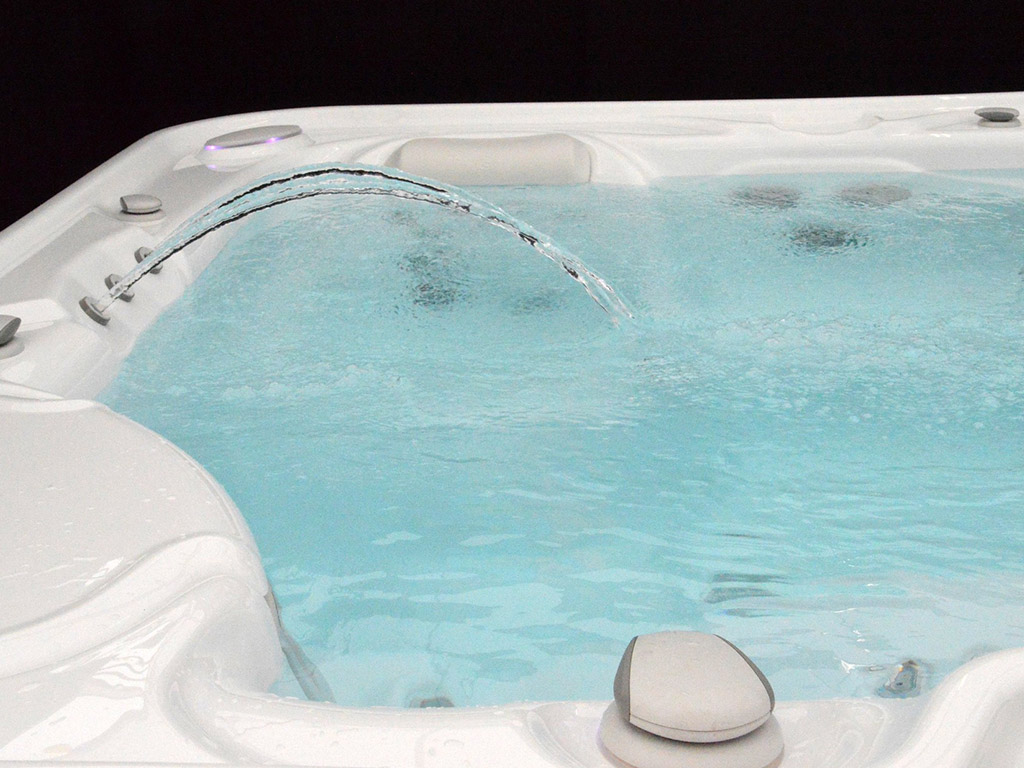
What is Dichlor and Trichlor
Dichlor and Trichlor are abbreviations for chemical compounds that contain chlorine atoms. They are often used in the context of swimming pool and spa water treatment.
Dichlor is a type of stabilised chlorine compound available in granular or tablet form, it is stabilised meaning it contains a stabilising agent which helps protect the chlorine from degradation due to sunlight.
Trichlor like Dichlor is also a chlorine compound used for pool and spa water treatment commonly available in tablet, sticks or granular form, and just like Dichlor, Trichlor is also a stabilised chlorine product to help protect the chlorine from UV degradation.

Differences Between Dichlor and Trichlor
Although both Dichlor and Trichlor are chlorine based compounds, they have several differences which we’ll mention below:
Chlorine Content:
- Dichlor: Contains approximately 62% available chlorine.
- Trichlor: Contains approximately 90% available chlorine.
Stabilisation:
- Dichlor: Moderately stabilised with cyanuric acid to protect chlorine from sunlight degradation.
- Trichlor: Highly stabilised with a significant amount of cyanuric acid, which can lead to higher cyanuric acid levels in the water.
pH Impact:
- Dichlor: Slightly acidic in nature, so it can lower the pH of pool water over time.
- Trichlor: More acidic than dichlor, which means it can have a more pronounced pH-lowering effect on pool water.
Use and Application:
- Dichlor: Typically dissolved in water and added directly to the pool or spa. Can be used for both regular chlorination and shock treatments.
- Trichlor: Often used in pool floaters, automatic chlorinators, or skimmer baskets. It is generally used for continuous chlorination and is less commonly used for shock treatments.
Cost and Availability:
- Dichlor: Often more expensive per unit of chlorine compared to trichlor.
- Trichlor: Generally more cost-effective in terms of the amount of chlorine you get per product.
It is always important to remember that either of the above will need regular water testing and proper chemical management which is essential to maintain a clean and balanced swimming pool or spa, and that when using either, it will require regular pool/spa draining (every 2 months is recommended).
This is why Bond Chemicals recommends using Liquid Lithium instead of Dichlor or Trichlor as it will lead to significant water savings each year.
Our Range
-
Liquid Perox 210
$48.00 -
EasyTreat Pool – Liquid Magnesium 5L/15L
$45.00 – $95.00 -
EasyTreat Pool – Liquid Pool Acid 1L/2.5L
$9.50 – $12.50 -
EasyTreat – Liquid Buffer 500ml/1L/5L
$11.05 – $32.69 -
EasyTreat – Liquid Sunblock 500ml/1L/5L
$13.61 – $45.62 -
Liquid Lithium – 500ml/1L/5L
$35.00 – $135.00
Frequently Asked Questions
What is Liquid Lithium?
Liquid Lithium is a solution of Lithium Hypochlorite containing 100 gpl of available chlorine as Lithium hypochlorite.
Do I need a special Lithium Test Strip?
No, any brand of test strip that measures Free and/or Available Chlorine will be suitable.
How do I dose Liquid Lithium?
The conservative approach is to follow the instructions on the back of the container.
Alternatively, follow the article on the Bond website “Liquid Lithium – Simple Dosing Instructions“. You can operate your spa continually by dosing LL to obtain a reading of 3-4 ppm of free chlorine, and Super Chlorinating weekly.
Why use Liquid Lithium?
- Most stable sanitizer available for use in heated spas.
- Will not damage spa pumps, heaters and other metallic spa components.
- Will not damage fiberglass and acrylic spa components
- Easiest to use – Minimal impact on pH, alkalinity, and hardness which means less adjustment and cost for these additives.
- No need to dump spa water due to cyanurate build-up.
- Better chance of retaining manufacturer’s warranty.
Why can't I get chlorine reading when I first dose with Liquid Lithium?
When you treat water for the first time with a chlorine sanitizer, you may find that it is difficult to achieve a free chlorine reading.
Fresh water is not always “fresh”. It may contain dissolved vegetable matter, animal and bird droppings, minerals such as iron and manganese, or cyanuric acid as an additive in pool water preparation.
All of these “contaminants” will consume your sanitiser chlorine from your first water treatment. The APVMA has prescribed an “Initial Start-up Shock” which has been based on impurities in average Australian water, however, many pool/spa water sources require additional sanitizer to satisfy the chlorine demand of the “contaminants”. Once the “contaminant” demand has been satisfied, it will be possible to obtain a free chlorine reading.
On the other hand, water containing too much chlorine may bleach the colour from the test strip which will also prevent you from getting a reading.
Can I mix Liquid Lithium with Other Sanitisers?
See article “Use of Chlorine with other Sanitising Systems” on the Bond website
Why Choose Bond Chemicals
Bond Chemicals is Australian owned and managed by two entrepreneurial Chemical Engineers with over 40 years experience in the industry.








